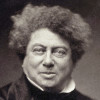“ As hatred produces a desire of the misery and an aversion to the happiness of the person hated. ”
David Hume, A Treatise of Human Nature (1738). copy citation
| Author | David Hume |
|---|---|
| Source | A Treatise of Human Nature |
| Topic | happiness misery |
| Date | 1738 |
| Language | English |
| Reference | |
| Note | |
| Weblink | http://www.gutenberg.org/files/4705/4705-h/4705-h.htm |
Context
“But love and hatred are not compleated within themselves, nor rest in that emotion, which they produce, but carry the mind to something farther. Love is always followed by a desire of the happiness of the person beloved, and an aversion to his misery: As hatred produces a desire of the misery and an aversion to the happiness of the person hated. So remarkable a difference betwixt these two sets of passions of pride and humility, love and hatred, which in so many other particulars correspond to each other, merits our attention.
The conjunction of this desire and aversion with love and hatred may be accounted for by two different hypotheses.”
source



